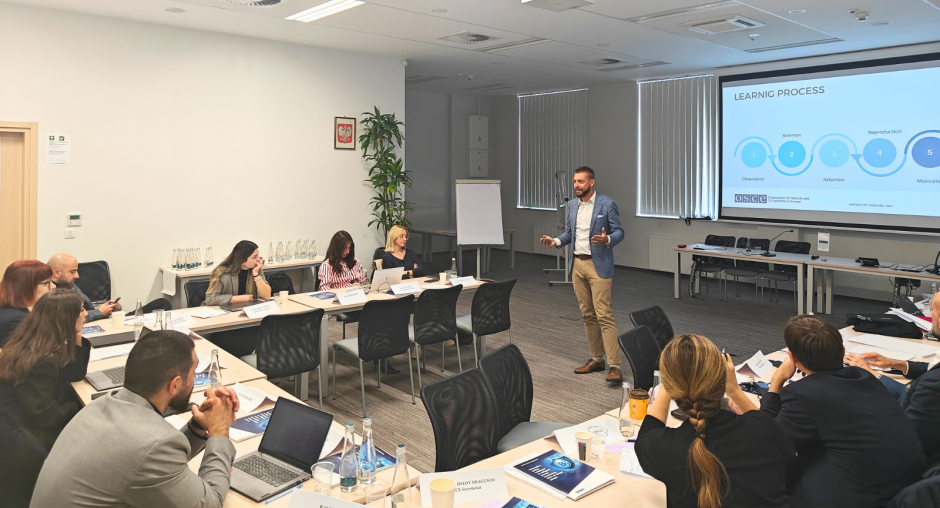Future trainers on virtual asset regulation and investigation from across the OSCE region receive training at first-of-its-kind course

From September 25 to 27, fifteen participants from various OSCE participating States met in in Gdansk, Poland, for training session on adult education techniques. The objective was to equip participants with the necessary skills to educate others in their countries and across the OSCE region on topics such as virtual asset regulation, compliance, co-operation, and investigations. The event, organized by the Office of the Co-ordinator of OSCE Economic and Environmental Activities (OCEEA), brought together participants from diverse backgrounds to build their capacity as future trainers. It was hosted by University of Gdansk, and facilitated by General Inspector of Financial Information of Poland.
The two-day training session focused on key aspects of public speaking, structured and coherent delivery, cultural adaptation, and effective communication techniques to ensure clarity in their future educational endeavours.
The event is part of a broader OSCE initiative to support national authorities in mitigating money laundering risks associated with virtual assets across OSCE participating States. The programme included both theoretical and practical exercises, allowing participants to receive feedback from leading experts on their knowledge transfer techniques and public presentation skills.
"This is a landmark event within the framework of the OSCE’s virtual assets project—the first of its kind,” said Ralf Ernst, Deputy Co-ordinator and Head of Economic Activities at OCEEA. “Over the past two years, we have been working closely together, implementing this project across different countries. With your support, we are now ready to take this initiative to the next stage: sharing knowledge at the national level with your colleagues and expanding our efforts to new beneficiary countries. The high level of interest and engagement we have witnessed in each beneficiary country underscores the significance of tackling the security and economic governance challenges posed by money laundering and financial crime."
The training course was organized within the framework of the extra-budgetary project “Innovative Policy Solutions to Mitigate Money-Laundering Risks of Virtual Assets”, implemented by OCEEA. The project is financially supported by Germany, Italy, Poland, Romania, the United Kingdom and the United States.
